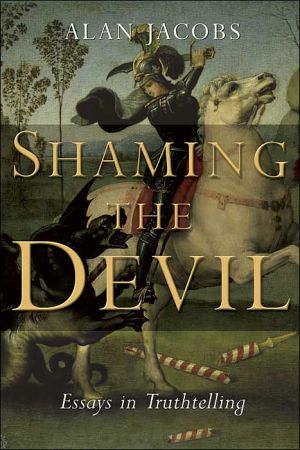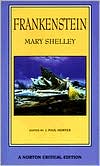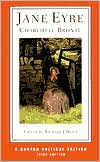Shaming the Devil
Shaming the Devil offers a compelling series of reflections that explore how hard it is to tell the truth about the world of culture -- and how central that task is to the Christian life. Employing the literary essay as a powerful means for cultural criticism and using other writers and thinkers as friends and foils in his quest, Alan Jacobs incisively and insightfully revisits the question asked by Pilate and so many others through history: "What is truth?" In the first part of the book...
Search in google:
Shaming the Devil offers a compelling series of reflections that explore how hard it is to tell the truth about the world of culture -- and how central that task is to the Christian life. Employing the literary essay as a powerful means for cultural criticism and using other writers and thinkers as friends and foils in his quest, Alan Jacobs incisively and insightfully revisits the question asked by Pilate and so many others through history: "What is truth?" In the first part of the book Jacobs contemplates the work of people whom he takes to be exemplary truth seekers: Rebecca West, W. H. Auden, Albert Camus, Alexander Solzhenitsyn, Linda Gregerson, and Leon Kass. He then engages writers who challenge the search for truth: Jean-Jacques Rousseau, Iris Murdoch, Wole Soyinka, Philip Pullman, and Anne Carson. The third section of the book consists of a single lengthy essay that pursues the provocative question of whether today's computer technology helps or hinders us in our pursuit of truth. Extremely well written and rich in wisdom, Shaming the Devil will appeal to anyone interested in literature, modern culture, and the Christian worldview.Publishers WeeklyWheaton College professor Jacobs once again displays his considerable gifts in this collection of essays originally published in the Weekly Standard, First Things and the Christian review Books & Culture. As in his earlier collection, A Visit to Vanity Fair, Jacobs's range of interests and the breadth of his reading is extraordinary, along with the depth of his Christian humanism. His recurring theme here is the promises and limits of the modern era, as seen through some of its most celebrated figures: Jean-Jacques Rousseau, Albert Camus, W. H. Auden, Iris Murdoch and Wole Soyinka. Even an essay on Sappho's poetry becomes a meditation on modern erotic politics, in dialogue with the Song of Solomon. A final section on Jacobs's sometimes comical attempts to install the Linux operating system on his own computer explores information technology, that quintessentially modern achievement. The tone here is somewhat more serious than in Vanity Fair, but never inaccessible, not least because Jacobs never takes himself too seriously. Notwithstanding the relatively conservative venues where Jacobs publishes, his writing is also utterly free of ideological cant, and his reading even of those with whom he disagrees is marked by generosity, humor and humility. Every writer longs for readers of Jacobs's integrity and creativity; discerning readers will revel in the chance to let Jacobs read aloud, as it were, over their own shoulder. (Sept.) Copyright 2004 Reed Business Information.
Shame the Devil3Auden's happy eye21Camus : wisdom and courage36The witness48The judgment of grace60The genesis of wisdom83The only honest man97Iris Murdoch's added vowel116Wole Soyinka's outrage128the republic of heaven142The re-invention of love154Computer control (the virtues of resistance)169
\ Publishers WeeklyWheaton College professor Jacobs once again displays his considerable gifts in this collection of essays originally published in the Weekly Standard, First Things and the Christian review Books & Culture. As in his earlier collection, A Visit to Vanity Fair, Jacobs's range of interests and the breadth of his reading is extraordinary, along with the depth of his Christian humanism. His recurring theme here is the promises and limits of the modern era, as seen through some of its most celebrated figures: Jean-Jacques Rousseau, Albert Camus, W. H. Auden, Iris Murdoch and Wole Soyinka. Even an essay on Sappho's poetry becomes a meditation on modern erotic politics, in dialogue with the Song of Solomon. A final section on Jacobs's sometimes comical attempts to install the Linux operating system on his own computer explores information technology, that quintessentially modern achievement. The tone here is somewhat more serious than in Vanity Fair, but never inaccessible, not least because Jacobs never takes himself too seriously. Notwithstanding the relatively conservative venues where Jacobs publishes, his writing is also utterly free of ideological cant, and his reading even of those with whom he disagrees is marked by generosity, humor and humility. Every writer longs for readers of Jacobs's integrity and creativity; discerning readers will revel in the chance to let Jacobs read aloud, as it were, over their own shoulder. (Sept.) Copyright 2004 Reed Business Information.\ \ \ \ \ Library JournalJacobs (English, Wheaton Coll.; A Theology of Reading) offers a rigorous intellectual analysis of authors who search for the truth in their writings, as well as authors who acutely present their own brand of truth. The first section, "Exemplars," offers an insightful and at times moving literary analysis of the work of W.H. Auden, Albert Camus, and Alexander Solzhenitsyn, among others. Those who are not literature students may find this section too serious and even arduous. Meanwhile, "Explorations" presents several essays about authors like Iris Murdoch, who in her search for truth believes that "at some point we must lose God." The last section is made up of one long essay about the role that computers play (or don't play) in our perception of or search for the truth. While the book bills itself as a collection of essays, it lacks a central theme. Most of the essays deal with truth in some way, but none of them deal with it in the same way. Recommended only for specialized university collections.-Wesley A. Mills, Empire State Coll. of SUNY, Rochester Copyright 2004 Reed Business Information.\ \








